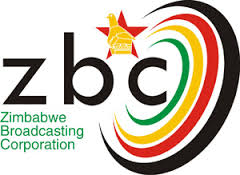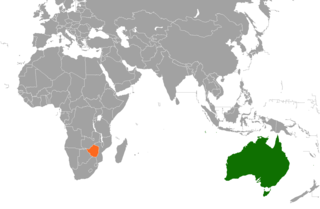
Zimbabwe Rhodesia, alternatively known as Zimbabwe-Rhodesia, also informally known as Zimbabwe or Rhodesia, was a short-lived sovereign state that existed from 1 June 1979 to 18 April 1980, though it lacked international recognition. Zimbabwe Rhodesia was preceded by another state named the Republic of Rhodesia and was briefly under a British-supervised transitional government sometimes referred to as a reestablished Southern Rhodesia, which according to British constitutional theory had remained the lawful government in the area after Unilateral Declaration of Independence (UDI) in 1965. About three months later, the re-established colony of Southern Rhodesia was granted internationally-recognized independence within the Commonwealth as the Republic of Zimbabwe.

The prime minister of Rhodesia was the head of government of Rhodesia. Rhodesia, which had become a self-governing colony of the United Kingdom in 1923, unilaterally declared independence on 11 November 1965, and was thereafter an unrecognized state until 1979. In December 1979, the country came under temporary British control, and in April 1980 the country gained recognized independence as Zimbabwe.

Sir Reginald Stephen Garfield Todd was a liberal Prime Minister of Southern Rhodesia from 1953 to 1958 and later became an opponent of white minority rule in Rhodesia.
John James Wrathall, was a British-born Rhodesian politician. He was the last white President of Rhodesia. He formerly worked as a chartered accountant.

The Zimbabwe Broadcasting Corporation (ZBC) is the state-owned broadcaster in Zimbabwe. It was established as the Rhodesian Broadcasting Corporation (RBC), taking its current name in 1980. Like the RBC before it, the ZBC has been accused of being a government mouthpiece with no editorial independence.

The prime minister of Zimbabwe was a political office in the government of Zimbabwe that existed on two occasions. The first person to hold the position was Robert Mugabe from 1980 to 1987 following independence from the United Kingdom. He took office when Southern Rhodesia became the Republic of Zimbabwe on 18 April 1980. This position was abolished when the constitution was amended in 1987 and Mugabe became president of Zimbabwe, replacing Canaan Banana as the head of state while also remaining the head of government. The office of prime minister was restored in 2009 and held by Morgan Tsvangirai until the position was again abolished by the 2013 Constitution of Zimbabwe.

The Rhodesian Security Forces were the military forces of the Rhodesian government. The Rhodesian Security Forces consisted of a ground force, the Rhodesian Air Force, the British South Africa Police, and various personnel affiliated to the Rhodesian Ministry of Internal Affairs. Despite the impact of economic and diplomatic sanctions, Rhodesia was able to develop and maintain a potent and professional military capability.

Fay King Chung is a Zimbabwean educator and was an independent candidate for the 2008 Zimbabwean senatorial election. Chung has worked to extend access to education and to bring education-with-production principles into school curricula in Zimbabwe and other developing countries.

Foreign relations exist between Australia and Zimbabwe. Both countries have full embassy level diplomatic relations. Australia maintains an embassy in Harare, and Zimbabwe maintains an embassy in Canberra.

The Federation of Rhodesia and Nyasaland, also known as the Central African Federation (CAF), was a colonial federation that consisted of three southern African territories: the self-governing British colony of Southern Rhodesia and the British protectorates of Northern Rhodesia and Nyasaland. It existed between 1953 and 1963.

The Ministry of Internal Affairs, commonly referred to as INTAF, was a cabinet ministry of the Rhodesian government. One of Rhodesia's most important governmental departments, it was responsible for the welfare and development of the black African rural population. It played a significant role maintaining control of rural African villages during the Rhodesian Bush War.

The modern political history of Zimbabwe starts with the arrival of white people to what was dubbed Southern Rhodesia in the 1890s. The country was initially run by an administrator appointed by the British South Africa Company. The prime ministerial role was first created in October 1923, when the country achieved responsible government, with Sir Charles Coghlan as its first Premier. The third premier, George Mitchell, renamed the post prime minister in 1933.
William John Harper was a politician, general contractor and Royal Air Force fighter pilot who served as a Cabinet minister in Rhodesia from 1962 to 1968, and signed that country's Unilateral Declaration of Independence (UDI) from Britain in 1965. Born into a prominent Anglo-Indian merchant family in Calcutta, Harper was educated in India and England and joined the RAF in 1937. He served as an officer throughout the Second World War and saw action as one of "The Few" in the Battle of Britain, during which he was wounded in action. Appalled by Britain's granting of independence to India in 1947, he emigrated to Rhodesia on retiring from the Air Force two years later.

The Ministry of Health was a government ministry of Southern Rhodesia first established in 1948, with the establishment of the Federation of Rhodesia and Nyasaland the responsibility for health was a federal responsibility from 1954 to 1963. The ministry returned to Southern Rhodesia from 1963 with the end of the Federation and then Rhodesia from the country's self-proclaimed independence in 1965 to 1979, when the country transitioned from white minority rule to the multiracial democracy of Zimbabwe.

The Minister of Internal Affairs was the head of the Ministry of Internal Affairs, or INTAF, a department of the Rhodesian government concerned with the welfare and development of Rhodesia's rural black population. During the Rhodesian Bush War, the ministry also played a significant military role. The Minister of Internal Affairs was appointed by the Prime Minister of Rhodesia.

The Ministry of Agriculture was a cabinet ministry of the government of Rhodesia. It was responsible for overseeing the nation's agricultural development.
Gwebi College of Agriculture is an agricultural college located near Harare, Zimbabwe.

The Deputy Prime Minister of Rhodesia was the deputy head of government of Rhodesia, serving under the Prime Minister of Rhodesia. Rhodesia, which became a self-governing colony of the United Kingdom in 1923, unilaterally declared independence on 11 November 1965, and was thereafter an unrecognized state until 1979. In December 1979, the country came under temporary British control, and in April 1980 the country gained recognized independence as Zimbabwe.

The Ministry of Justice was a cabinet ministry of the government of Rhodesia. It was responsible for overseeing the nation's laws, legal system and law enforcement.










